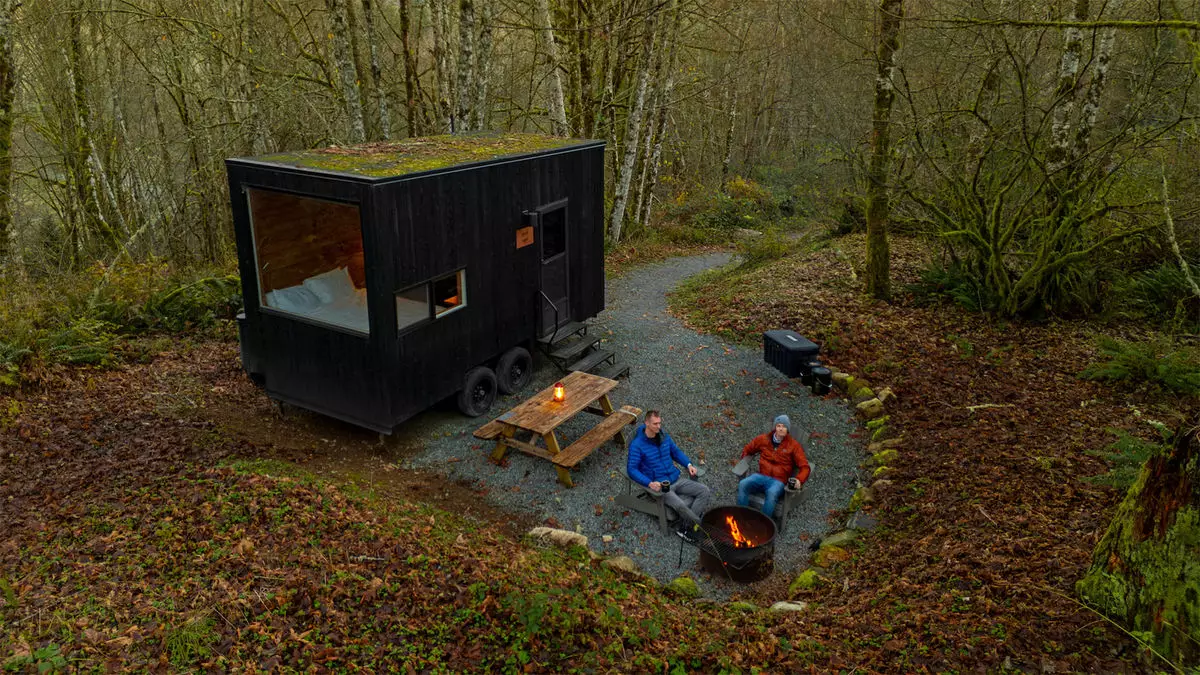The hospitality industry is undergoing a remarkable transformation, as major players pivot their focus towards outdoor accommodations. With Marriott International’s recent acquisition of Postcard Cabins and a partnership with the boutique brand Trailborn, the shift is evident. These strategic moves are not mere expansions; they signify a growing recognition of the lucrative outdoor hospitality market, where travelers express an increasing desire to connect with nature in upgraded, sophisticated ways.
Founded in 2015 initially under the name Getaway, Postcard Cabins specializes in offering “tiny cabin” experiences strategically located within a short drive from major metropolitan areas across the U.S. Its portfolio boasts over 1,200 cabins at 29 sites, including picturesque areas like the Catskills in New York and Shenandoah in Virginia. This model caters to city dwellers yearning for a quick nature escape, emphasizing convenience while providing a unique lodging experience.
Trailborn complements Marriott’s vision by targeting adventurers seeking proximity to significant national treasures such as the Grand Canyon and Rocky Mountain National Park. This initiative reflects a broader trend where travelers increasingly favor accommodations that not only provide comfort but also a seamless connection to natural attractions.
Marriott’s foray into outdoor-focused lodging isn’t an isolated incident; it joins a trend where other hotel giants are diving into nature-oriented hospitality. Hyatt Hotels’ collaboration with Under Canvas, which encompasses several glamping resorts, is a prime example of this movement. Hilton’s partnership with AutoCamp mirrors this sentiment, as both brands recognize the burgeoning potential within outdoor leisure economies.
Furthermore, emerging brands such as Outbound Hotels and Loge Camps are filling the gap between basic outdoor accommodations and luxury lodges, allowing travelers to take advantage of national parks without sacrificing comfort. This rapid expansion indicates a robust demand shift in hospitality, where traditional offerings are being seamlessly integrated with outdoor experiences.
The conversations around how travel is defined and experienced are evolving. Shannon Stowell, CEO of the Adventure Travel Trade Association, articulates this cultural shift, suggesting that outdoor adventure is now more broadly defined. Trends show that various activities — from hiking to culinary experiences — dominate consumer interests, leading to a new nomenclature referred to as “soft adventure.”
This term embodies a more inclusive approach to adventure travel, appealing to diverse demographics, including older travelers and families. Access to nature-infused experiences like gourmet dining paired with outdoor activities is changing the game, signaling that the notion of adventure is increasingly synonymous with comfort.
As hospitality brands adapt to these evolving preferences, they strive to deliver an enticing blend of comfort and adventure. Heather Dietrick from Outside Interactive highlights the increasing demand for upscale accommodations that still allow guests to immerse themselves in nature. The total package includes well-appointed rooms, gourmet cuisine, and tailored outdoor adventures, creating a delightful juxtaposition between luxury and wilderness.
The emergence of companies like Pelorus embodies this duality, as they also rethink what adventure means. A shift towards “soft adventures” has enabled them to cater to families and groups with varying interests. The diverse offerings of luxury trips, such as winter adventures in Scandinavia and culinary experiences in Japan, illustrate an appeal to travelers seeking enrichment alongside comfort.
As traveler expectations continue to metamorphose, a palpable interest in outdoor experiences aptly remains at the forefront. The hospitality industry is evidently navigating this uncharted territory, paving the way for a unique convergence of comfort, adventure, and bespoke experiences. Not only does this trend challenge conventional perceptions of travel, but it also beckons hoteliers to innovate continually and embrace the essence of the great outdoors sensitively and sustainably.
As luxury and nature increasingly mesh, the potential for new business models and experiences within the outdoor hospitality sector remains vast. Travelers will continue to seek that perfect balance between thrilling outdoor challenges and the comforts of modern luxury, making this segment a fascinating development in the tourism landscape.


Leave a Reply